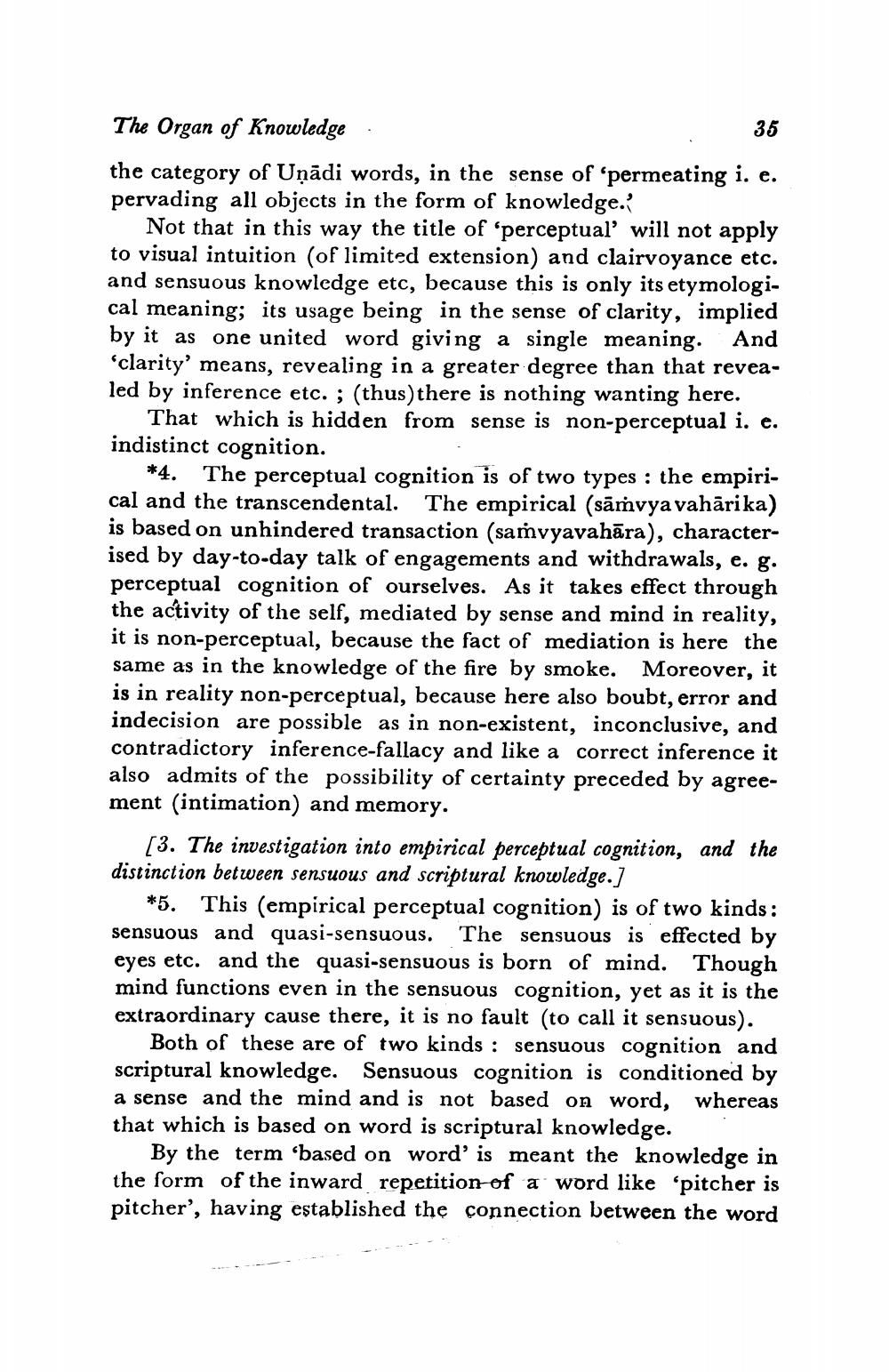________________
The Organ of Knowledge.
: 35 the category of Uņādi words, in the sense of 'permeating i. e. pervading all objects in the form of knowledge.'
Not that in this way the title of 'perceptual will not apply to visual intuition (of limited extension) and clairvoyance etc. and sensuous knowledge etc, because this is only its etymological meaning; its usage being in the sense of clarity, implied by it as one united word giving a single meaning. And 'clarity' means, revealing in a greater degree than that revealed by inference etc. ; (thus)there is nothing wanting here.
That which is hidden from sense is non-perceptual i. e. indistinct cognition.
*4. The perceptual cognition is of two types : the empirical and the transcendental. The empirical (sāmvyavahārika) is based on unhindered transaction (samvyavahāra), characterised by day-to-day talk of engagements and withdrawals, e. g. perceptual cognition of ourselves. As it takes effect through the activity of the self, mediated by sense and mind in reality, it is non-perceptual, because the fact of mediation is here the same as in the knowledge of the fire by smoke. Moreover, it is in reality non-perceptual, because here also boubt, error and indecision are possible as in non-existent, inconclusive, and contradictory inference-fallacy and like a correct inference it also admits of the possibility of certainty preceded by agreement (intimation) and memory.
[3. The investigation into empirical perceptual cognition, and the distinction between sensuous and scriptural knowledge.]
*5. This (empirical perceptual cognition) is of two kinds: sensuous and quasi-sensuous. The sensuous is effected by eyes etc. and the quasi-sensuous is born of mind. Though mind functions even in the sensuous cognition, yet as it is the extraordinary cause there, it is no fault (to call it sensuous).
Both of these are of two kinds : sensuous cognition and scriptural knowledge. Sensuous cognition is conditioned by a sense and the mind and is not based on word, whereas that which is based on word is scriptural knowledge.
By the term 'based on word' is meant the knowledge in the form of the inward repetition of a word like 'pitcher is pitcher', having established the connection between the word




